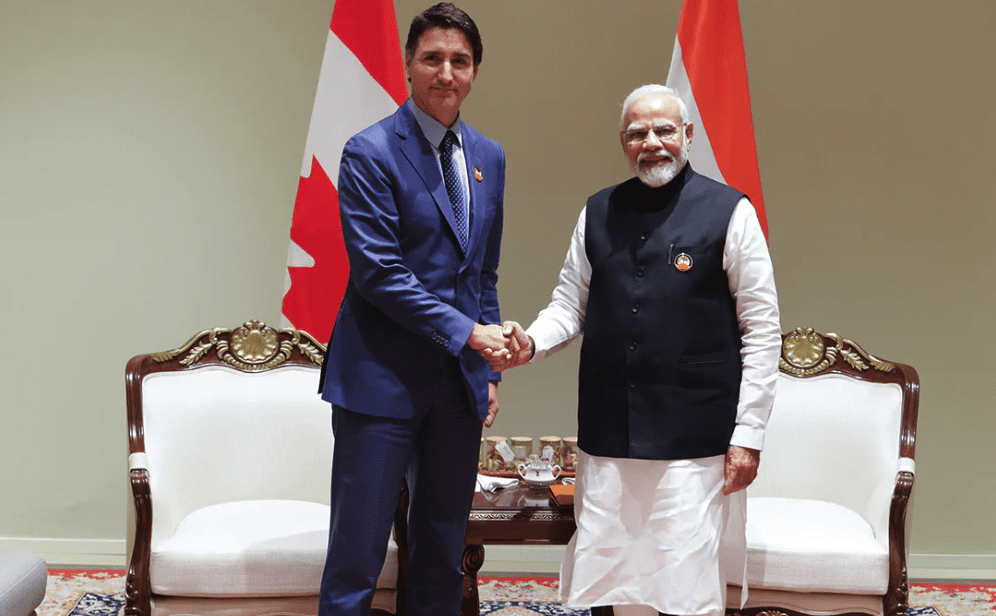Exploring the India-Canada Standoff: The swift escalation in diplomatic tensions underscores the gravity of the crisis, which differs significantly from India’s previous confrontations with other nations due to the specific nature of Canada’s accusation.
Exploring the India-Canada: The suspension of visa services for Canadian citizens by India has further escalated the ongoing dispute between the two nations. This dispute began when Canada accused India of potential involvement in the assassination of a Sikh separatist activist on Canadian soil. BLS International, the agency responsible for processing Indian visa applications in Canada, confirmed the suspension of visa services and attributed it to “security threats.”
The initial notice regarding the suspension of Indian visa services for Canadians appeared on BLS International’s website but was briefly removed before reappearing without an explanation. India’s Ministry of External Affairs cited “security threats” faced by the Indian High Commission and consulates in Canada as the reason for the sudden halt in visa issuance.
Arindam Bagchi, the ministry’s spokesperson, explained that the core issue was related to the incitement of violence, alleged inaction by Canadian authorities, and their failure to provide adequate security for Indian diplomatic missions. He emphasized that India believed it was the host government’s responsibility, in this case, Canada, to ensure the safety and security of diplomatic missions.
This suspension of visa services followed a travel advisory issued by India’s foreign ministry, urging its citizens in Canada to remain vigilant due to “politically condoned hate crimes.”
The diplomatic tension between India-Canada further intensified after Canadian Prime Minister Justin Trudeau claimed that there were “credible allegations” of a potential link between “agents of the government of India” and the assassination of Hardeep Singh Nijjar, a Sikh Canadian citizen killed by masked individuals in June. New Delhi vehemently denied these allegations, calling them “absurd and motivated” and noting that Canada had not provided any specific evidence to support its claims.
The situation has led to the expulsion of senior diplomats from both India and Canada and raised concerns about a growing rift between these two important international partners, with potential implications for their relations with the United States.
Hardeep Singh Nijjar was an advocate for the creation of Khalistan, a separate Sikh homeland that would encompass parts of India’s Punjab state. This movement is banned in India, with some associated groups listed as “terrorist organizations.” Nijjar’s assassination shocked and outraged the Sikh community in Canada, one of the largest outside India and home to more than 770,000 members of the religious minority, which is one of the largest Sikh communities outside of India. Canadian authorities have yet to make any arrests in connection with Nijjar’s murder.
In conclusion, the dispute between India and Canada has escalated due to allegations and counter-allegations related to the assassination of a Sikh activist, with diplomatic, political, and security ramifications for both nations. read more
